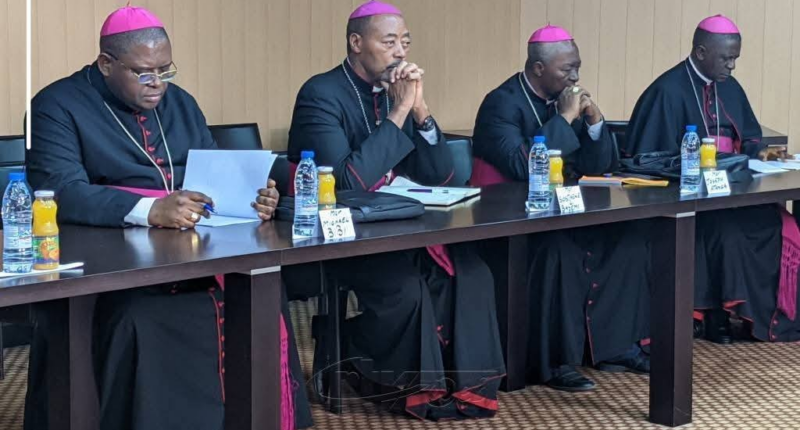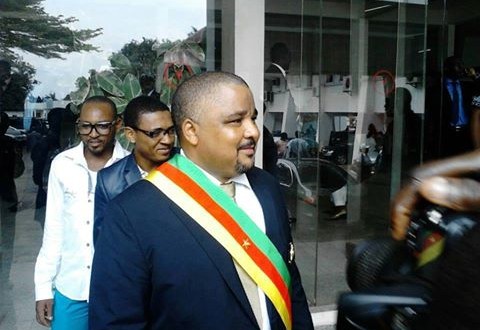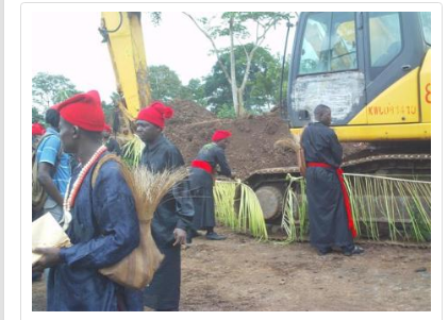ROCKING MY BOAT: Father Awoh Joseph Calls for Open Critique Within Cameroon’s Church
By James Agbor, BaretaNews Correspondent
YAOUNDE, Cameroon – In a bold and introspective reflection shared on social media, Father Awoh Joseph, a Cameroonian priest known for his candid commentary on ecclesiastical matters, has challenged the culture of silence and deference within the Church. Titled “Rocking My Boat,” his statement urges fellow clergy and laypersons to embrace “scandalous freedom” in dialogue, drawing parallels to biblical figures and modern theologians while critiquing the fear that stifles internal reform.
Father Awoh begins by acknowledging the traditional values instilled in Cameroonian communities: respect for the Church, preservation of harmony, and avoidance of disruption. “In many of our communities, especially in Cameroon, we are taught to respect the Church, to preserve harmony, and to avoid ‘rocking the boat.’ And rightly so – faithfulness often calls for reverence and restraint,” he writes. However, he invokes the story of young Daniel challenging elders to save Susanna, suggesting that true love for the Church sometimes demands uncomfortable truths. “I’m not claiming to have all the answers. I’m simply wondering aloud: what if rocking the boat is not rebellion, but a deeper form of fidelity?”
Citing Jesuit author Fr. Gerard Hughes from his 1985 book The God of Surprises, Father Awoh warns against the misuse of virtues like loyalty and obedience: “There is no more effective way of destroying true faith in God than by misusing words like loyalty, humility, obedience and faithfulness.”
The priest details the varied responses to his previous reflections, noting mixed reactions from clergy but overwhelming support from the laity. “Some of my reflections have drawn mixed reaction, especially from my brother priests, who felt my words were too critical of the Church or its leadership. Interestingly, the overwhelming majority of laypersons who responded online or reached out privately offered positive feedback,” he explains. Father Awoh emphasizes that he is not influenced by praise but remains committed to truth and open to correction.
What troubles him most, however, is the pervasive silence among priests. Despite being Facebook friends with many, public engagement is rare. Instead, private messages flood in from both older and younger colleagues expressing agreement. “If they’re genuinely moved by what I’ve said, why not say so openly?” he questions.
Father Awoh highlights instances where his posts have been forwarded to Church authorities or shared in diocesan forums without commentary, raising concerns about unspoken fears. He contrasts this with the clergy’s eagerness to circulate and praise bishops’ critiques of government excesses. “As priests, we’re quick to circulate letters and videos from bishops who critique government excesses. We comment on them, celebrate their courage, and applaud their prophetic witness. But when we speak of the Church’s prophetic mission, does it only mean confronting governments and external institutions? Can’t our laity and clergy also speak prophetically to the institutional Church itself?”
He attributes this reticence to a deeper fear of repercussions, noting that those who speak out have faced consequences, and some even share information with anti-Church influencers. Drawing a stark comparison, Father Awoh states, “The Church in Cameroon must not mirror the government of the Republic of Cameroon, where the president is always right. And the Ministers of God must not become ‘ministers of state,’ defending the status quo regardless of personal conviction.”
Advocating for reform, he calls for spaces of honest critique and listening to the Holy Spirit. Quoting Dominican Fr. Tim Radcliffe, recently elevated to Cardinal by Pope Francis on December 7, 2024, from his 2005 book What is the Point of Being a Christian?, Father Awoh envisions a Church of openness: “It must become the place of scandalous freedom in which we dare to float ideas, test hypotheses, affirm an awkward and unpopular truth, and tell the Emperor that he has no clothes on, or hear that we have none on ourselves.”
Such transparency, he argues, would reduce public scandals and affirm the Church’s human reality: “Our Church is made up of human beings: striving for holiness, yet wrestling with weakness, not denying it.”
Concluding on a note of gentle persistence, Father Awoh describes his approach as “gently rocking my own boat in a Church that longs for both fidelity and reform.” To defenders of the status quo, he offers a parting thought: “This is not an opening salvo. It is a parting shot. À bon entendeur…”
Father Awoh’s reflection comes amid ongoing discussions about the role of the Church in Cameroon’s socio-political landscape, where clergy have increasingly voiced concerns over governance and human rights. His call for internal prophetic voices could spark broader conversations on ecclesiastical accountability, echoing global movements for transparency within the Catholic Church.
BaretaNews will continue to monitor reactions to Father Awoh’s statement as it circulates among Cameroonian faithful and beyond.





